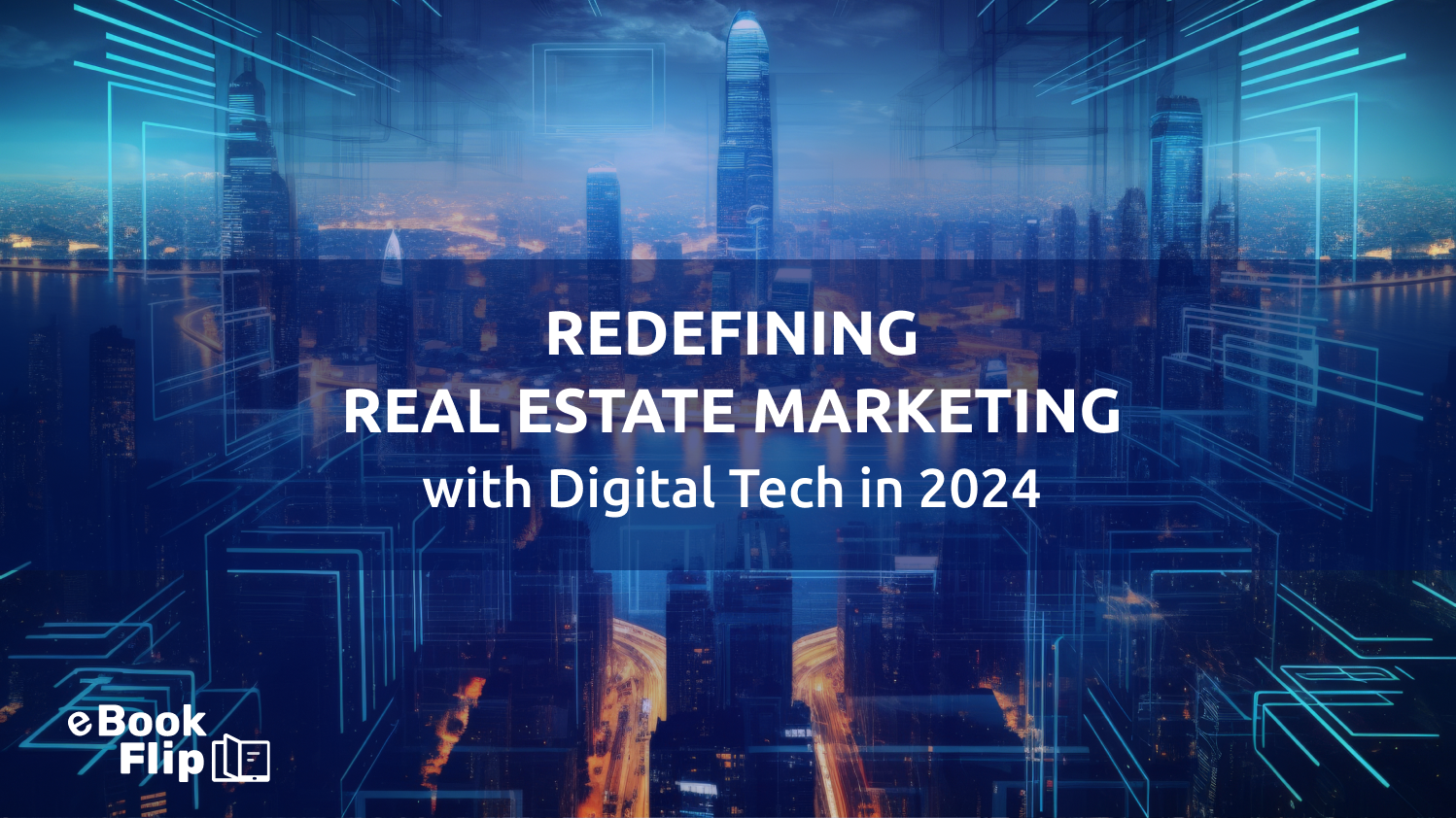
While change is a part and parcel of every aspect of life, these last few years have been especially difficult for the real estate industry. To begin with, the pandemic drastically changed customer expectations and requirements. From home offices, to better views to more spacious interiors; almost overnight designs and offerings had to change. Added to that, is the challenge of adapting to and incorporating technology into one’s day-to-day work. Sounds overwhelming, doesn’t it?
Well, you’re in luck! We’re here to help you embrace these marketing technologies that are transforming your real estate world. In this article, we take a glimpse into these trends, and explore how you can leverage them to your advantage. Let’s dive in!
According to the National Association of Realtors, 97% of all homebuyers use the internet to find their homes. With technology such as predictive analytics, aspects of the industry such as market trends, prices, and the way properties are presented have also been impacted.
What this implies is that realtors like you now have to cater to the tech-savvy user of today. The property-buyer of today spends more time looking for properties online rather than in the real world. Although their final purchase decision may depend on the real estate agent, realtors need to use technology to attract buyers in the initial stages of the sales funnel.
Which is why property technologies like mobile applications and virtual assistants have become so popular. Yet, 41% of real estate firms find it challenging to keep up with technology.
With that in mind, here’s an overview of the trending marketing technologies of 2024 and how they can be used to expand and future-proof your real estate business.
Perhaps the quickest, easiest, and most cost-effective way to leverage technology to your advantage is by digitizing your marketing materials. That doesn’t mean you stop your offline advertising altogether. What we are referring to is presenting your existing documents digitally.
Even if you have PDF files, they can be enhanced by converting them into stunning digital flipbooks. Property brochures can be made into digital brochures, listings, and sales pitch examples can also be shared electronically.
Doing this not only creates a great first impression, but it is also more efficient in the long run. For example, the smallest change can be made instantly at the click of a button.
That apart, another advantage flipbooks have over PDFs is that they come with the ability to add a number of interactive features. You can embed videos of virtual tours of your property or share numbers in the form of interactive graphs or animations. Additionally, with the right kind of navigation, your customers will no longer feel overwhelmed while having multiple documents to sift through.
Digitally transforming your marketing materials also gives you, as a brand, more insights into your customers. With in-built analytics within your online flipbook, you can track their behavior to understand what kind of content appeals to them, what queries you need to answer, and the level of interest they have.
If you’re on board with digitizing your content in the form of a flipbook, you must explore using VR & AR technology to bring your content to life.
Virtual Reality (VR) technology enables the creation of a realistic computer-generated environment that users can interact with, almost as if they were physically present in the space. Virtual tours are an example of this.
Augmented Reality (AR) on the other hand, uses technology to enhance real-life environments. For example, while conducting a tour of a property, realtors can use AR to show customers what the property looks like with different kinds of furnishings.
The best part is, both these can be incorporated into your online flipbook.
With visuals becoming commonplace online, it makes business sense to invest in improving their quality. This can be done by using advanced technology such as drones and high-pixel cameras. Using them you can create breathtaking stills and videos.
These serve more than just an aesthetic purpose. They give your potential online clients a better sense of the property, the landscaping, and its surroundings; as they say ‘location is everything’. And this is true for any kind of real estate marketing, be it commercial, residential, or governmental.
Advanced visuals can also help show overhead site maps more easily and can improve the storytelling impact of your marketing efforts. They also attract more attention online.
It is a given that technology will continue to change. It is also a given that as it changes, it will be even easier and more cost-effective to implement into one’s marketing efforts. While this list is by no means comprehensive, it does give you a glimpse into how easily you can incorporate today’s technology to redefine your real estate marketing efforts.
Take the first step towards this by exploring eBook Flip.